The SAFETY course is under construction: the Academic partners, supported by the practical expertise from the companies, are working on the modules that will compose the course.
As an output of Work Package 3 “Preparing and testing the training material for e-learning theoretical and practical module” the partners committed to developing 5 theoretical modules (around 2 hours each, 10 hours of training in total) and 25 practical modules (Emergency simulations).
The topics addressed by these theoretical modules (10 topics, one hour each, a total of 10 hours) are the following:
- Systematic Approach to Emergency (xABCDE, SAMPLER, BLS/ALS Algorithm, ISBAR Model);
- Cardiovascular Emergencies (ACS, Hypo-/Hypertension, Arrhythmia);
- Pulmonary Emergencies (Pulmonary Embolism, Pulmonary edema, COPD/Asthma, Bolus);
- Traumatic Emergencies (Polytrauma, Traumatic Brain Injury, Thoracic Trauma, Abdominal Trauma, Musculoskeletal Trauma);
- Neurological & Psychiatric Emergencies (Stroke, Epilepsy, ICB);
- Shock (Hypovolemic shock, Distributive shock, Cardiogenic shock, Obstructive shock);
- Infant Emergencies & Obstetrics;
- Thermal and Toxicological Emergencies;
- Aspects of CRM, Teamwork, Leadership, Communication;
- Aspects of Simulation Training.
The following practical modules are divided into 5 macro-groups, each one composed of 5 different topics:
- Cardiopulmonary (ACS; Tachyarrhythmia; Bradyarrythmia; Hypertension/ Hypertensive crisis; Respiratory failure and Airway Management);
- Trauma (Polytrauma; Traumatic brain injury; Abdominal Trauma; Musculoskeletal Trauma);
- Neurology (Stroke; Intracranial Hemorrhage; Epilepsy; Psychosis; Hypoglycemia);
- Shock (Hypovolemic shock, e.g. Hemorrhagic shock, Distributive shock – Sepsis, Anaphylaxis; Cardiogenic shock- CPR; Obstructive shock, e.g. Tension pneumothorax);
- Special Circumstances (Childbirth; Infant Dyspnea; Emergency in pregnancy; Thermal injury; Toxicological emergencies; Multimorbidity and Palliative Care).
All the training materials are prepared by the Academic partners following a precise division of tasks agreed upon within the whole consortium. The company partners have the task of revising the materials and providing support, also technological, to the Academic partners.
The course will be designed to cover a multitude of topics and aspects related to simulation in medicine. It is undoubtedly an innovative and important endeavour that is not easy to find in conventional university curricula and is thus considered an important opportunity for both academics and university students. Besides, the course materials and the architecture were designed on the basis of a primary research, conducted by a large number of European university students, looking for gaps in the relevant University curricula and exploring students’ interests and concerns. Ιt will be a great success if the course can be integrated into some University curricula and thus maintain its sustainability and continuous improvement through the planned evaluation process.
Written by Giuditta Pasta – ValueDo (Florence, Italy)



